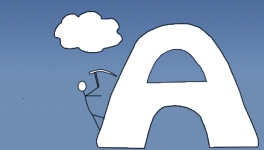« It’s Not Always a Mask | Main | My Question for Twitter’s Founder »
Has the Internet Made Advertising Obsolete?
By Chris | April 3, 2009
Eric Clemons over at Tech Crunch argues so in this thought-provoking article. His points are:
- Consumers do not trust advertising. (References Dan Ariely of Predictably Irrational)
- Consumers do not want to view advertising
- Consumers do not need advertising
The crux of his argument is that the internet has made information so widely available that advertising no longer is necessary. If consumers want to learn more about a product they can read reviews online. Moreover, they don’t need or want to be inundated with advertisements. He notes, “There is no shortage of places to put ads“.
True, but ad space never was the scarce resource. There is lots of open space for billboards in Montana. But no one is there to read it. The scarce commodity is people’s attention. And, there are still 24 hours in a day. As people spend more time online, they are spending less time doing other things, like reading the newspaper. Websites and blogs that capture people’s attention will always be able to make money if they can divert some of that attention to a third-party. Radio personalities have become experts at this. Bloggers can and will do the same.
From the demand side of things, advertising is more than just conveying information. I’m not a marketer, but it’s clear that brands are valuable because they illicit emotions in their consumers. Advertisers are getting better at using the internet to connect with users and create a brand image. For example, how couldn’t you like Burger King’s “Whopper Sacrifice” promotion? They gave customers a free Whopper if they dropped 10 Facebook friends? (Friends were messaged that their friendship wasn’t worth 1/10 of a Whopper). And doesn’t this website make you want to chew Stride gum?
Advertising, though, does more than just build a brand. Advertising is useful because consumers don’t know what they want. Yes, the non-profit side of the internet helps me find things that I would enjoy. I find a lot of good economics books by reading blogs. But I am also introduced to a lot of good products and ideas through advertisements. Sometimes these advertisements are direct, other times advertisers have created the incentives for websites to promote products that their visitors are likely to enjoy (you’d see a lot less book reviews online if websites didn’t get a cut of any sales that followed on Amazon). Asymmetric information will persist unless there are financial incentives for people to introduce others to things they would enjoy, but are currently oblivious to.
Advertisers are constantly bidding for our attention. Those that are bad at guessing our preferences lose money and go out of business. The internet makes advertising all the more targeted. It’s the survival of the fittest and only those companies that can best predict our preferences will survive.
Of course, this model is a simplification. It doesn’t hold up so well when advertisers only need us to buy, not like, what we end up purchasing. Moreover, advertisers often take advantage of our weaknesses. But, these are the exceptions, rather than the rule. As long as attention is scarce, it will always command a price. And this market, as so many others, does a good –albeit imperfect– job of allocating resources.
Topics: Economics, Markets, Psychology, Web 2.0 | No Comments »


